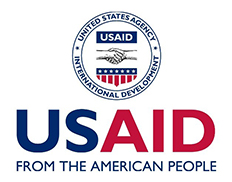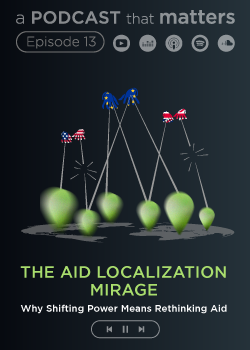Print

Feed Enhancement for Ethiopian Development (FEED)
Details
Locations:Ethiopia
Start Date:Unknown
End Date:Unknown
Sectors: Inst. Devt. & Cap. building, Livestock (incl. animal/bird production & health)
Categories:Consulting services
Funding Agencies:
Date posted:Feb 20, 2013
Description
The USDA-funded Feed Enhancement for Ethiopian Development (FEED) project will increase the incomes of smallholder farmers in six regions of Ethiopia through improved access to consistent, affordable and high-quality animal feeds that can support greater livestock productivity and efficiency. The project works with nine agricultural and multipurpose unions in six regions: Oromia, Amhara, Tigray, SNNP, Somali and Addis Ababa. It is expected to increase the incomes of 43,800 smallholder crop producers and over 19,000 smallholder livestock farmers.
Quality Feed and Nutrition for Livestock
With an estimated 41 million cattle and 37 million sheep and goats, the livestock sector is one of Ethiopia’s key agricultural industries. It contributes 30-35 percent of agricultural GDP and 15-18 percent of total export earnings, and employs one-third of Ethiopia’s rural population. However, this livelihood is highly susceptible to drought, animal disease outbreaks and other shocks, especially among the 80 percent of the population living in rural areas who have limited access to quality feed inputs and feed manufacturing techniques.
Implemented by ACDI/VOCA, the FEED program pursues two main program objectives to address this vulnerability:
1. Develop feed formulation and manufacturing capacity among five cooperative unions
FEED has provided technical assistance to 11 farmer unions and 244 farmer cooperatives (with over 70,000 direct and indirect beneficiaries) in feedlot and dairy nutrition, feeding management and forage production. Through workshops and direct training, pastoralists learn the basics of animal nutrition for fattening purposes. ACDI/VOCA has conducted training sessions on feed manufacturing techniques and marketing and business planning for the cooperative unions and participating Ministry of Agriculture staff members to support the establishment of commercial feed-manufacturing enterprises.
These unions and their member cooperatives integrate small- and medium-scale producers into feed manufacturing activities and increase pastoralists’ and feed-lot operators’ access to high-quality feed. ACDI/VOCA uses training and technical assistance to engage cooperatives in fattening operations and address topics such as feed storage, inventory control, feed delivery and evaluation of feeding management. These activities maximize feed intake, increase animal performance, cut waste and reduce the number of days per head in the feedlot. Additionally, 18 union staff and government experts received advanced training in comparative pricing of feed ingredients and formulation of compound feeds utilizing spreadsheet applications designed by ACDI/VOCA.
2. Increase access to quality feed inputs and build capacity in feed formulation and animal fattening
The project has also provided 9 sets of feed processing equipment to target unions and trained 16 employees in their operation. Seven of the 9 target unions receiving equipment and training in feed manufacturing are now operational, manufacturing and marketing dairy and feedlot concentrates and urea/molasses blocks.
Over 8,570 kg of improved forage seeds and seedlings as well as financial support for seedling management (seed bed preparation, watering, weeding, mulching, etc.) were provided. The project also supported 13 dairy cooperatives with technical assistance and milk processing equipment.
A searchable, online feed ingredient database containing feed inputs, including suppliers, amounts, prices and locations has been created and is providing information to project participants on feed ingredient vendors and prices. Discussions with the Ministry of Agriculture (MoA) led to a decision to house the database and its post-project operation at the Ethiopian Meat and Dairy Technology Institute (EMDTI), an MoA entity. The FEED project will provide the institute with technical and material support required for database relocation and management.
Other FEED interventions include:
- Strengthening feed distribution channels to ensure that feed reaches feedlots and livestock owners
- Providing technical assistance to prepare for, and respond to, emergency drought situations
- Providing ongoing support in cooperative management through project staff and short-term experts
- Organizing stakeholder study tours to learn best practices in feedlot and feed mill management, manufacturing and marketing of quality feed
An international study tour was conducted in and around Hyderabad, Andra Pradesh, India August 7-15, 2011. The presence of small- to medium-scale cooperative and privately owned and operated feed manufacturers and dairy and livestock producers as well as providers of other related support goods and services made the region an ideal area in which to study best practices. In total, 26 individuals participated in the tour (i.e., eight union/cooperative leaders, 11 MoA and Cooperatives Promotion Agency staff, six FEED project staff and one representative of the Ethiopian Animal Feed Industry Association). Sites visited during the tour included dairy and poultry farms, dairy processing cooperatives and unions, financial services cooperatives, livestock feed manufacturers, a livestock feed premix plant, a feed equipment manufacturer and government research and extension service providers.
Expected Results:
The FEED project interim assessment of forage and feeding practice interventions indicates that forage production and livestock feeding practices of participant farmers have been positively impacted during the course of project implementation. After project intervention, average area cultivated for improved forage species increased over 10 fold to 1480 m2 per household. Those farmers with relatively large plots of land, particularly in Oromia region (80 percent of the respondents) were able to collect adequate seed for their own sowing needs. Some were able to sell forage seed to generate additional income. Milk yield of cows owned by project participants have increased by approximately 2 liters per cow per day (a 20% increase) as a result of supplementation with urea-treated straw and cultivated forages.
After receiving ACDI/VOCA support 70 percent of the households interviewed in Addis Ababa either started cattle fattening or expanded their fattening activities, with an average of 3.14 additional animals being fattened per household. Returns to labor and facilities were $48.18 per animal fattened. Similarly 90 percent of the households interviewed in Oromia either started or expanded their fattening activities after receiving project support, with an average of three additional animals being fattened per household. Although a number of factors can contribute to such outcomes, respondents have commonly mentioned that the training and technical support in livestock nutrition and feeding and fattening economics obtained through participation in the FEED project played a major role in developing the knowledge and confidence needed to engage in such a profit-making enterprise. Findings from recent assessments indicate beneficiaries started or expanded improved forage production, increased milk yield and started or expanded fattening enterprises with FEED project support.
By creating the necessary conditions for a thriving animal feed industry, the FEED project will not only expand private sector involvement in commercial feed manufacturing, but will also increase investment throughout the livestock value chain as the benefits of improved feed result in higher-value meat and dairy products and expanded marketing opportunities.
The FEED project builds on the work of ACDI/VOCA’s successful USAID-funded Agricultural Cooperatives in Ethiopia project, which ended in 2006, and USAID-funded Pastoralist Livelihoods Initiative-Livestock Marketing project, which ended in September 2010.

